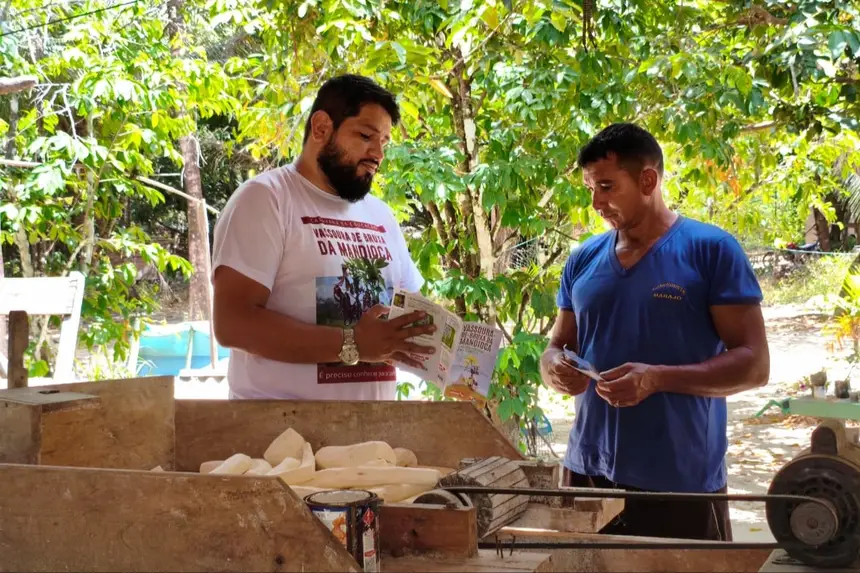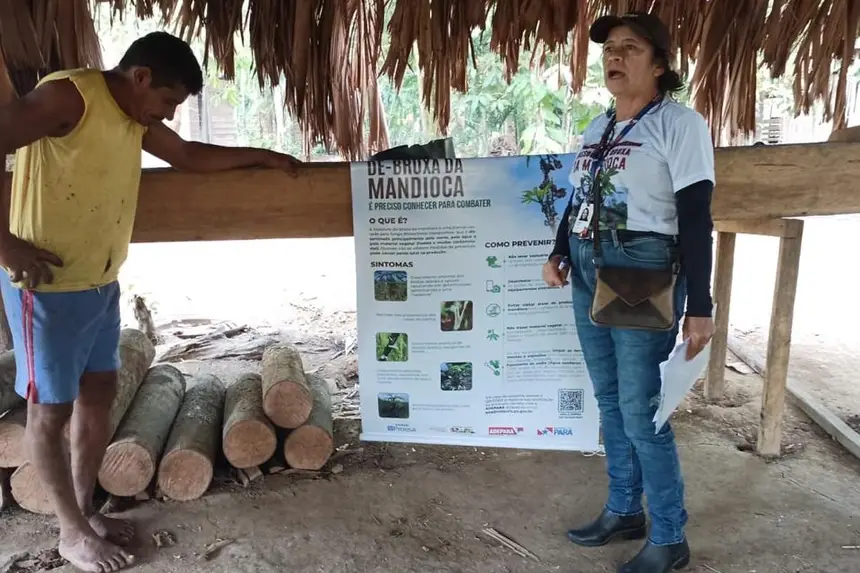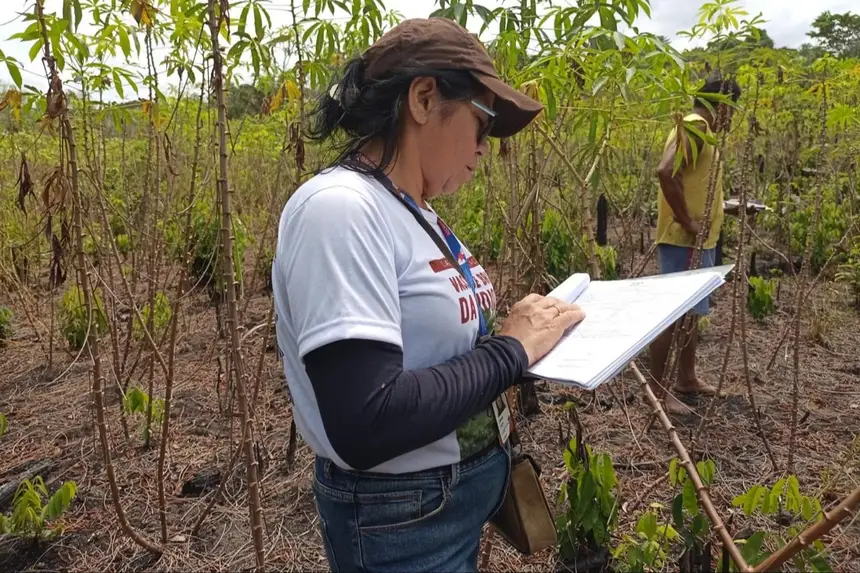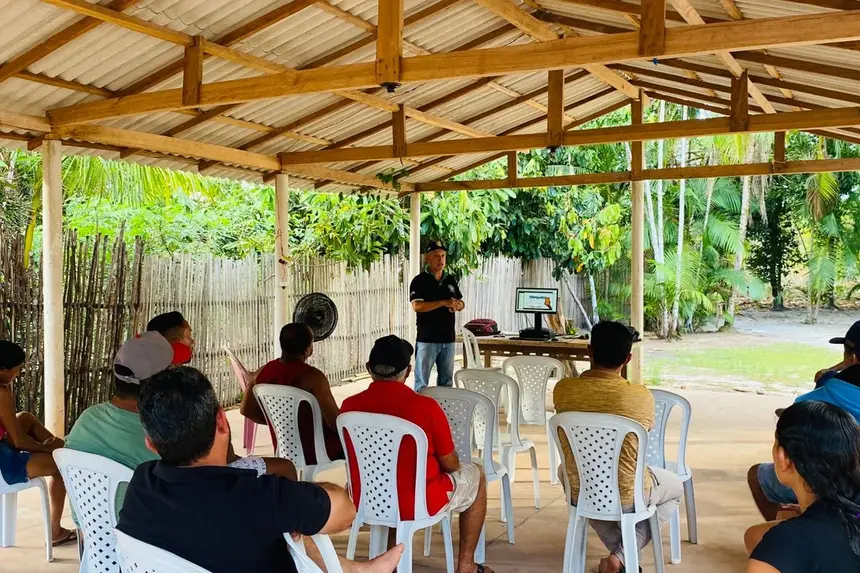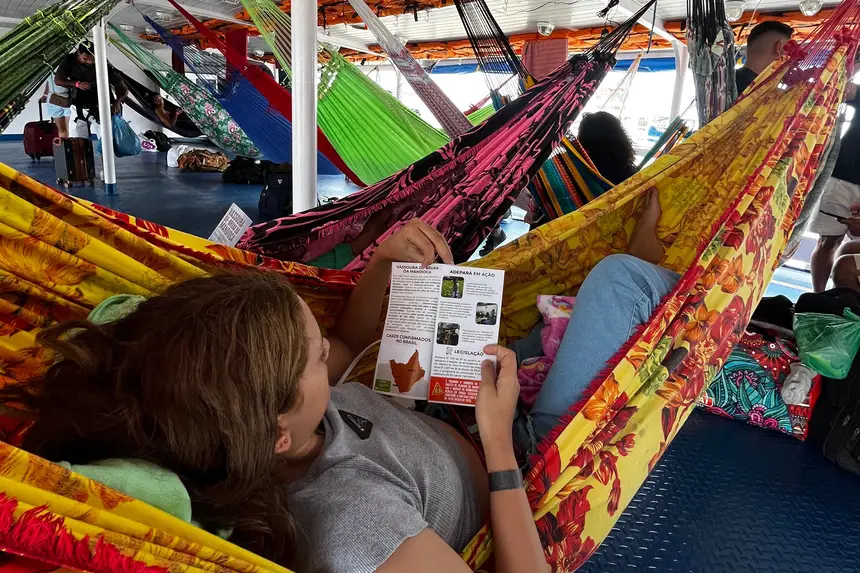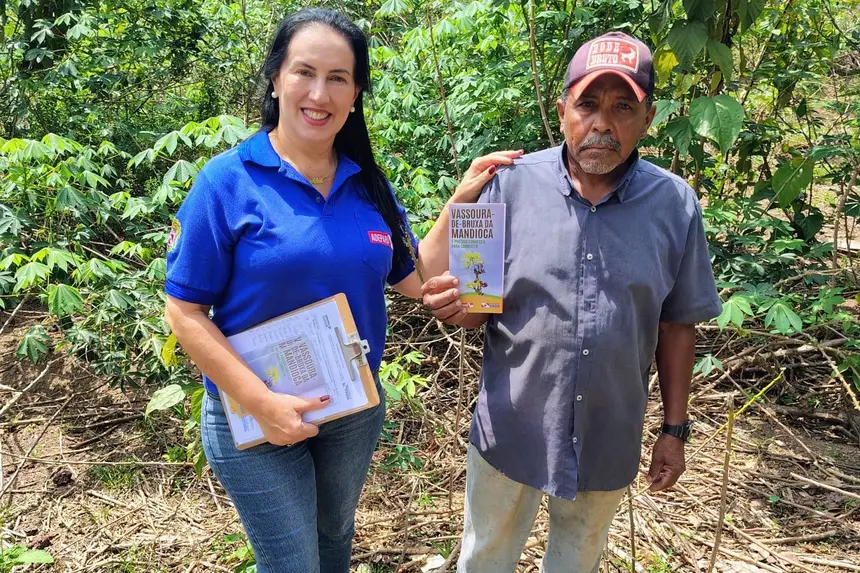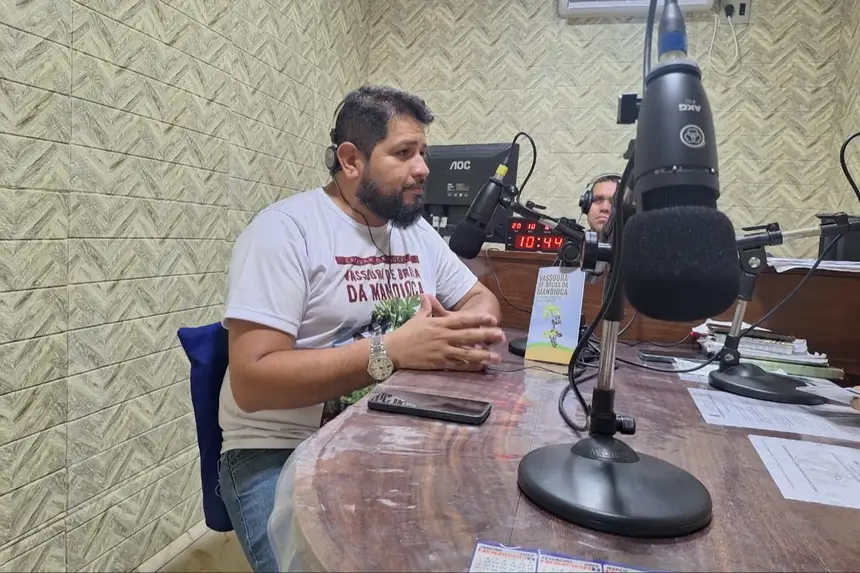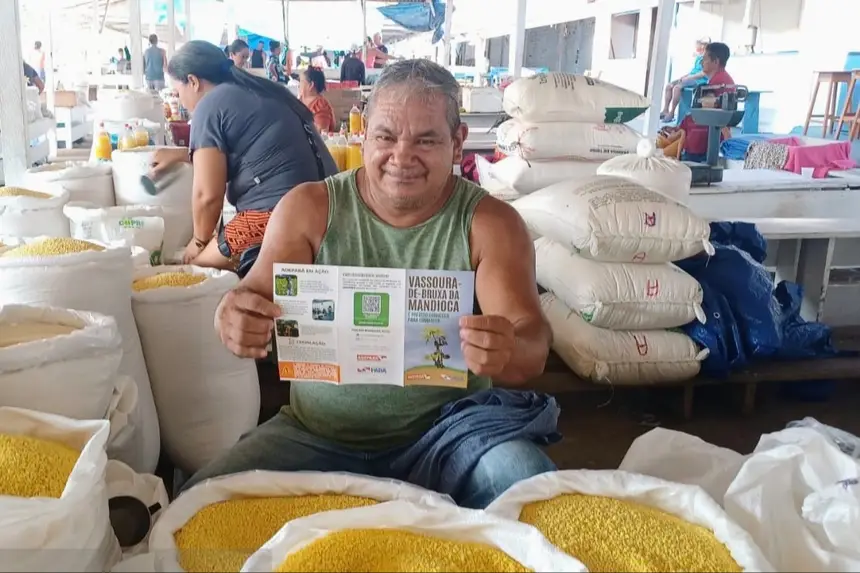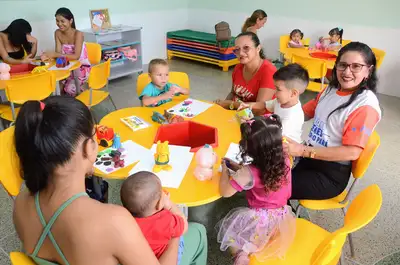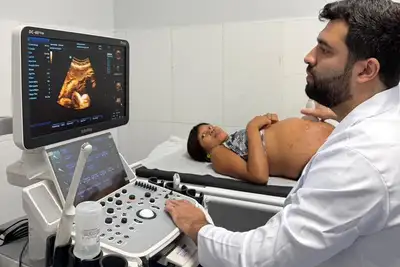ADEPARÁ intensifies actions throughout Pará during awareness week against Cassava Witch Broom
Actions in ports, fairs, schools, radios, and rural communities show that knowledge is the main tool against the Cassava Witch Broom
The Agricultural Defense Agency of the State of Pará (Adepará) promoted, from October 20 to 24, a series of educational actions in various municipalities in Pará to alert producers and the population about the risks of the Cassava Witch Broom, a disease caused by the fungus Ceratobasidium theobromae (also known as Rhizoctonia theobromae), which can compromise entire cassava crops.
The pest causes deformities in branches, stunting, and the emergence of weak and thin shoots, resembling an old broom — hence the popular name. The infection poses a risk of total crop loss, which is particularly concerning for Pará, the largest national producer of cassava.
“We intensified educational actions to prevent the Cassava Witch Broom throughout the State to raise awareness among the population about the risks of this disease, which can directly affect the basis of our flour production,” highlighted Gabriela Cunha, acting manager of Health Education at Adepará.
Education in ports and rural communities
In Belém, Adepará teams visited ports and vessels heading to Amapá. On the ship Ana Beatriz, which carries about 700 passengers, agricultural inspectors distributed informational materials and used the ship's sound system to explain the symptoms and prevention methods of the disease.
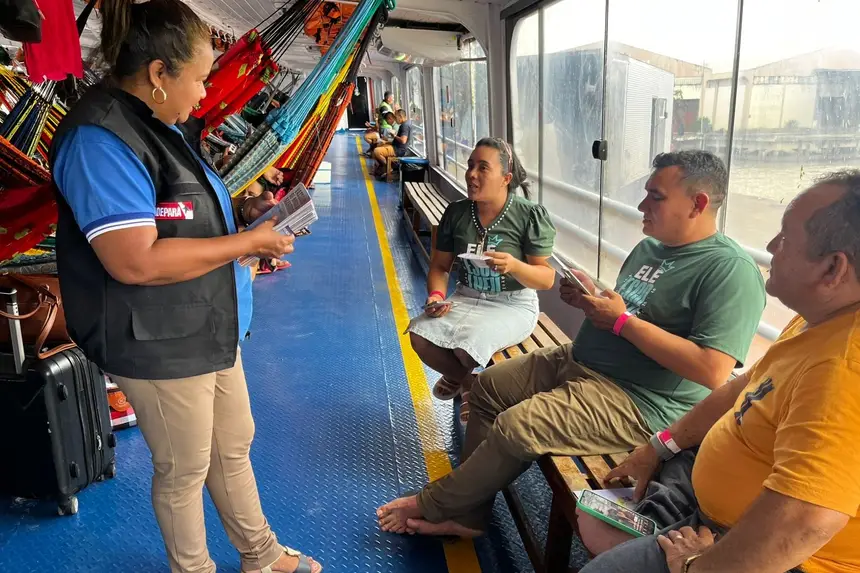
During the action, young Fábio Henrique, 9 years old, was impressed to learn that the Cassava Witch Broom could jeopardize the traditional flour for lunch. His mother, Bianca Figueiredo, expressed concern:
“I can't live without flour. I hope everyone follows the recommendations so that cassava production is not affected,” she said.
The spread of the fungus can occur through infected plant materials, contaminated cutting tools, and even through the movement of soil and water — hence, the alert is constant.
Mobilization in the countryside
To expand the reach of the guidelines, Adepará received support from local radios in over 20 municipalities. In Ponta de Pedras, Olivar Valente, regional manager of Soure, participated in an interview on Rádio Itaguari. In Salvaterra, Xinguara, Abaetetuba, Parauapebas, Altamira, and Redenção, staff also provided information to the public through community broadcasters.
In Rurópolis, Baião, Moju, and Bagre, educational actions took place directly in rural communities, with the distribution of materials and discussion circles with farmers. In São Geraldo do Araguaia and São Domingos do Araguaia, agency technicians received training from agricultural inspector Thaís Leão, the technical responsible for the Cassava Program.
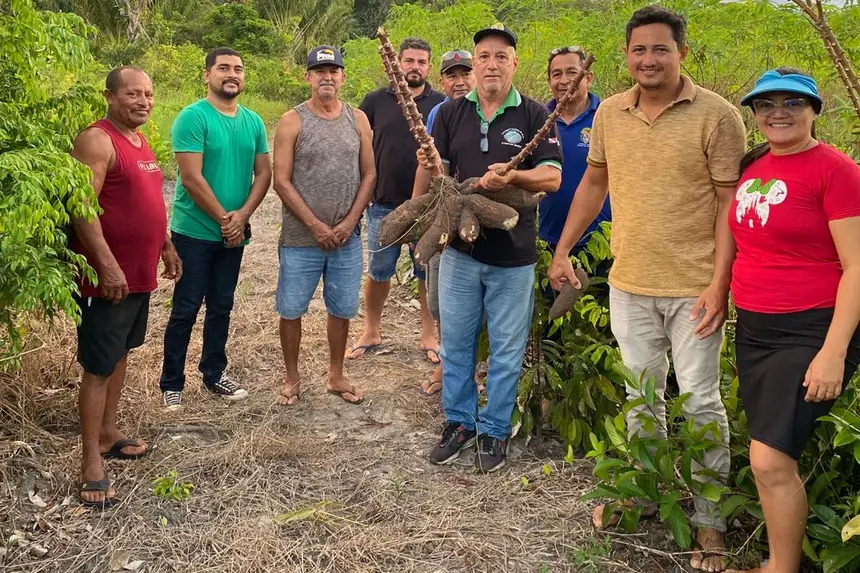
In the União community, in Paragominas, the work focused on rural producers, emphasizing early identification of the disease and preventive management.
In Novo Repartimento, Emater, Fundação Solidaridad, the Municipal Prosecutor's Office, the City Council, and the Municipal Department of Agriculture aligned joint preventive actions.
In Tucurui, students from the Technical Course in Agriculture at the Federal Institute of Education, Science and Technology of Pará (IFPA) attended a lecture by ADEPARÁ inspectors.
Knowledge to combat the pest
“This engagement is essential for the prevention and control of the Cassava Witch Broom in Pará. It is fundamental to know in order to combat this disease,” emphasized Lucionila Pimentel, director of Plant Defense and Inspection at Adepará.
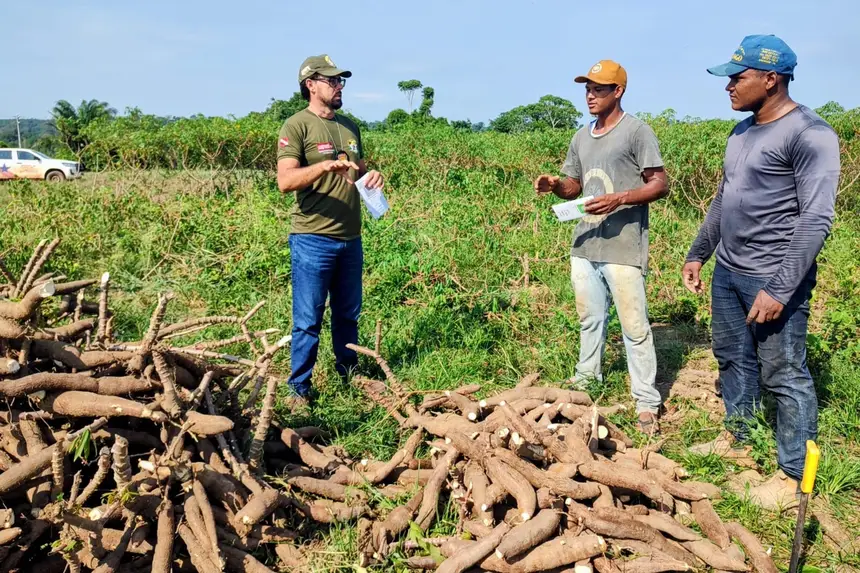
In the west of the state, fiscal agent Andressa Bentes reinforced the dialogue with producers:
“We talked about symptoms such as stunting that prevents plant development and how to prevent the disease to protect the crops.”
In Oriximiná, activities took place at fairs with flour vendors and with students from the Federal University of Western Pará (UFOPA).
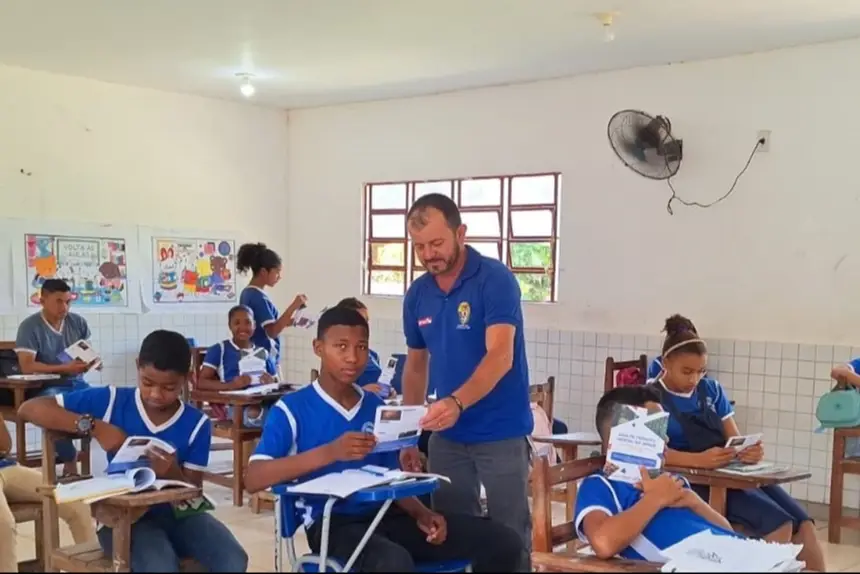
With actions in ports, fairs, schools, radios, and rural communities, Adepará shows that knowledge is the main tool against the Cassava Witch Broom, ensuring the safety of agricultural production and the sustainability of Pará's most traditional crop.


